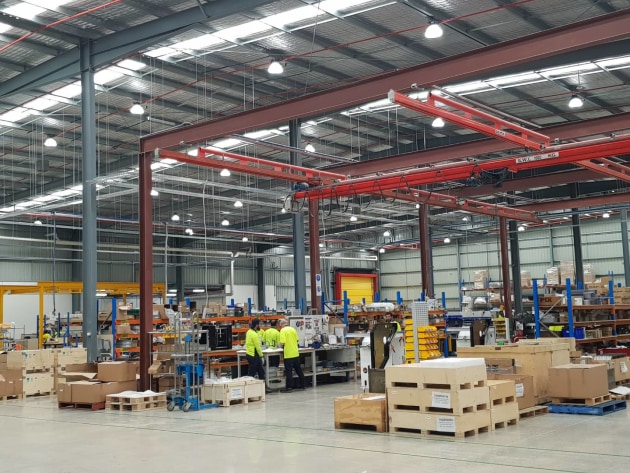Packaging solutions manufacturer tna today opened its new 80,000 sq ft manufacturing centre in Boronia, Vic, with company founder Alf Taylor telling PKN that the business is aiming to achieve sales of more than $1bn in five years time.
The past year has seen tna achieve growth of 70 per cent, this on top of an average compound growth over the 37 years since the business started of 27 per cent. Alf Taylor says, “Growth will come from geographic expansion, product expansion, applications expansion, and to a small degree from acquisitions.

“The big brands are global, and they want global packaging and processing solutions, in order to have the same result in every territory they operate. This is a key part of the tna advantage, and will drive growth.
“In addition the rapid growth of the middle class in Asia and the Middle East is driving demand for packaged products. Then the demand for smaller pack sizes is a rapidly developing trend around the world, which means more packs, which is all good news for tna, and will propel the growth.”
The more than $1bn sales target is four or five times the current turnover, with Taylor saying that the company's manufacturing capabilities and the market trends mean tna is on track to achieve the ambitious target.
The new factory, built for almost $8m, is two and half times the size of the previous facility, and is the latest of four tna plants around the world to be either significantly upgraded or built in the last 12 months, the others being in Dubai, Holland, and Mexico. There are now six tna manufacturing facilities around the world, and 16 sales offices, including in Moscow and Tokyo.

The company started by Alf and wife Nadia in 1982 initially had one 2,400 sq ft facility. It is today one of the big success stories of Australian manufacturing, with some 95 per cent of equipment produced in Melbourne exported.
Opening the plant with Alf and Nadia local MP Heidi Victoria paid tribute to the couple saying, “tna is a great Australian story of vision, intelligence, commitment. It is a significant local employer, and earns overseas revenue for the country.”
The company has 600 employees around the world, a third of them in Australia, with the Melbourne manufacturing site and head office in Sydney, which also includes the R&D department, where some two dozen staff work in developing new solutions.












